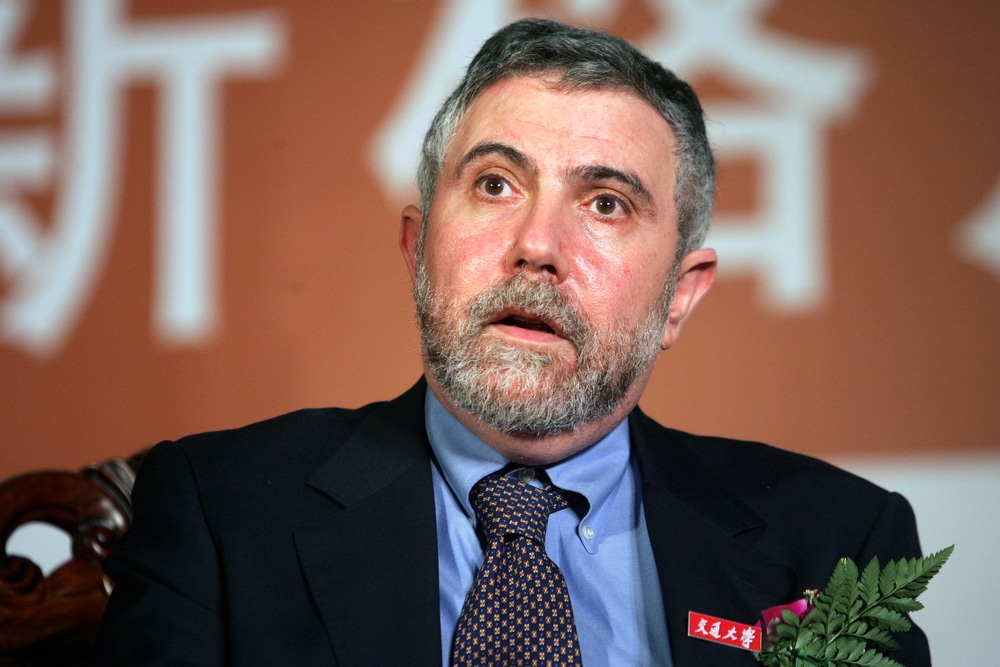At the beginning of last year, economist Paul Krugman wondered aloud whether Americans would even notice if the economy improved. In his considered opinion, it was already obvious that the economy was humming along merrily and that ordinary shmucks just didn’t get it.
Fast forward to this past week, and Krugman was beating the same drum, puzzling why it was that Americans just didn’t appreciate how great the economy was doing. Pointing to a complex interplay of wage growth, consumer confidence, unemployment, household spending, GDP growth, and a host of other metrics, Krugman reached for the only possible explanation for a regime apologist: we’re all just mistaken.
But it actually isn’t that complicated―and when it comes to what’s really weighing on the economy and Americans’ perceptions of it, inflation, it is Krugman that is wrong.
While econometrics are notoriously cloudy waters, they can mostly be avoided in analyzing the above apparent conundrum. Because while it is true that polls show “the economy” to be topping the majority of voters’ lists as their primary concern, their specific concern is inflation.
And regarding inflation, it is Krugman who is mistaken when he writes:
“According to a recent poll by The Wall Street Journal, 74 percent of Americans say that inflation has moved in the wrong direction over the past year—a result stunningly at odds with the data, which shows inflation plunging. But are people really experiencing rising inflation? As it happens, several organizations regularly survey consumers to ask how much inflation they expect, and these expectations have come way down, which is completely at odds with claims that inflation is getting worse.”
This is obviously wrong: unless you wanted more inflation over the past year then you were bitterly disappointed, as rampant inflation continued in 2023. So consumers are right: inflation has gotten worse per their expectations. Of course, it is likely that what Krugman actually means is that the rate of the increase of inflation has come down, but that is another matter―and hardly one worth celebrating except in the most Pyrrhic sense.
This is particularly true when one looks more closely at where the increase in the general price level has been the most intensely felt: food, fuel, rent, and mortgage payments. Together constituting over well over half of average individual monthly expenditures, all the other apparently good economic data in the world isn’t going to matter.
To borrow from one of Bill Clinton’s old advisors, James Carville: It’s the inflation, stupid!
Of course, having made a complete mess of things, the geniuses at the Eccles Building have been on an historic course of monetary tightening trying to correct course. Since March of last year the Federal Reserve has raised rates eleven times, taking rates to their highest in over twenty years. The pace of tightening itself has been the most rapid since the 1980s, when then-Chairman Paul Volcker resolved to correct the mistakes of his predecessors, particularly Chairman Arthur Burns, who had lacked the political courage to face down the necessary consequences of a prolonged bout of (necessary) tightening.
From skyrocketing mortgage payments and bank failures to a sharp increase in the cost of the government’s own debt servicing costs and likely recession, then as now the costs are of no little consequence. As of the Fed’s most recent statement last Wednesday, markets are now not anticipating rate cuts until September 2024; a far cry from what was expected even six months ago.
While much is still uncertain, one thing is not: few are buying so-called “Bidenomics,” no matter how much Paul Krugman tries to sell it.

































